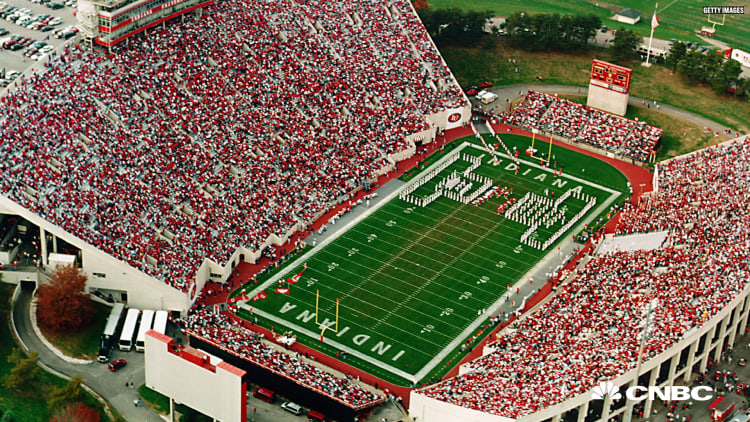The number of Americans who have defaulted on their student loans has reached a new high. The Institute for College Access and Success shows that 8.5 million borrowers were in default as of June 30, 2017, and more than half of those defaults came in the first half of this year alone.
to pay for school, which can seem more necessary, and yet also costs more, than ever. Their debt totals $1.4 trillion. The for 20-year-olds is $22,135. For 30-year-olds, it's $34,033.
And the cost of , while wages often don't.
Students who can't keep up sometimes feel like they have no choice. But unlike opting for , which temporally suspend payments, defaulting on a student loan should be a last resort, since it can have severe, long-lasting consequences.
What could happen
According to the U.S. Department of Education, a loan becomes delinquent the first day after you miss a payment and will remain delinquent until the past-due balance is repaid or your payment plan is adjusted. After 90 days past due, the delinquency is reported to the three major credit bureaus.
After 270 days, the loan goes into default.
When a loan defaults, it dramatically damages your credit, affecting your ability to purchase a car or put a down payment on an home.
"The late payments and default will stay on your credit report for years," Shannon McNay, of Student Loan Hero, tells CNBC Make It. "The only way you can get the default off your credit report is to complete a loan rehabilitation for your federal loans."
Also, after default, you also lose eligibility for deferment, forbearance and loan forgiveness, as well as other benefits, like choosing your own repayment plan and eligibility for additional federal aid.
Your school could also withhold your academic transcript, and you could lose the ability to purchase or sell assets such as real estate.

Then your balance increases. In fact, "the entire unpaid balance of your loan and any interest you owe becomes immediately due," the U.S. Department of Education's website notes.
When your loans are turned over to a collections agency after a default, all associated collections fees are added to your total balance.
If the loan still isn't paid, federal loan agencies can garnish a portion of your paycheck, typically up to 15 percent, after a 30-day warning. Your tax refund can also be withheld.
For private loans that have defaulted, you can be sued by the collector and may be responsible for any court costs and related fees.
Private loan agencies' penalties for missed payments vary and are often more harsh than those related to federal loans.
How you can get back on track
If you've missed payments, can't pay or think you may default, "talk to your lender immediately to see what options you have, including forbearance and deferment," McNay says. "Because if you default on your loans, [it] could set you back financially for years to come."
If you have already defaulted, "contact the organization that notified you as soon as possible," the U.S. Department of Education suggests.
"If you make repayment arrangements soon enough after your loan has gone into default, you may be able to resolve [it] quickly."

If it's tax season, don't file a return, some experts say. You have three years to file. Use that time to get your finances in order.
If you're being sued, Student Loan Hero says, hire an attorney to help you sort out your options and mount a defense. Always respond to summons and other legal correspondence.
There are three common options that could help remedy defaults: Rehabilitation, consolidation and repayment in full.
For rehabilitation, you must agree to make a series of payments over 10 consecutive months, based on your income. Consolidation allows you to combine the balance of all your federal loans into one, which could reduce the payment amount month to month.
And, lastly, for repayment in full, "you can repay the full amount that you owe at any time," according to the U.S. Department of Education.
Of course, "we understand that repayment in full is not a viable option for most people," adds the DOE. If you need to, instead, "focus on deciding between rehabilitation and consolidation. Once your loan has successfully been removed from default, you will regain eligibility for certain benefits."
Like this story? Like CNBC Make It on Facebook!
Don't miss:



